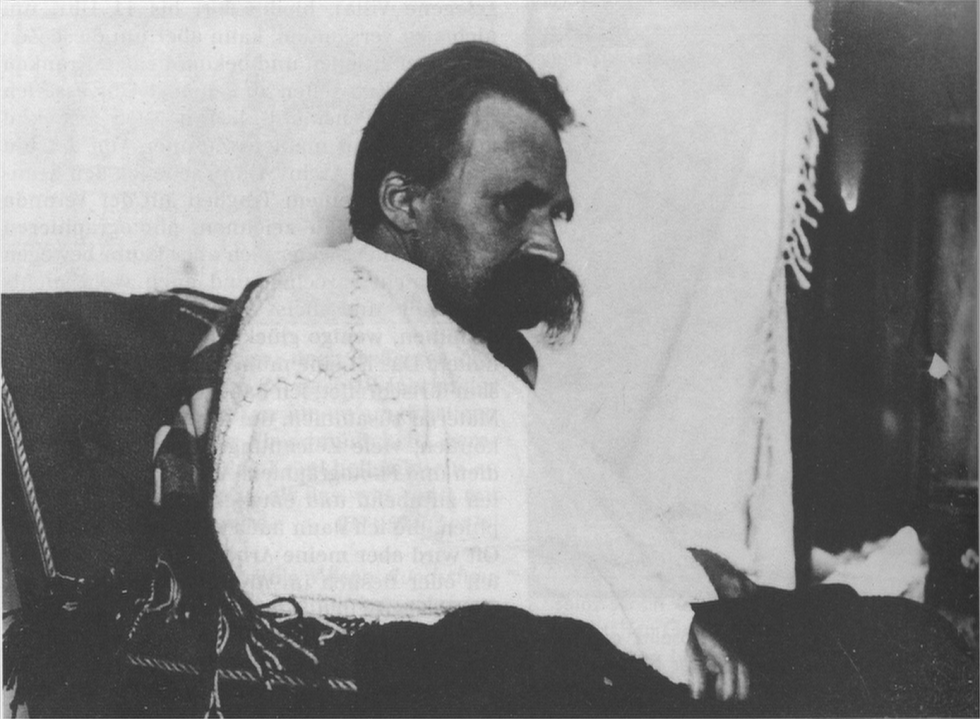German philosopher Friedrich Nietzsche asserts that adversity, including suffering, is not merely an obstacle to overcome but a necessary condition for personal and societal growth. He argues that challenges such as misfortune, opposition, and even hatred can serve as catalysts for developing strength, virtue, and resilience.
By comparing individuals and societies to towering trees, Nietzsche claims that these entities require the “bad weather and storms” of adversity to cultivate true strength and reach their full potential. Moreover, he contends that experiences that might seem to hinder progress – hatred, jealousy, and even suffering – can ultimately foster the conditions for exceptional growth, including the growth of virtue itself.
This perspective, while seemingly paradoxical and even unsettling, underscores Nietzsche’s emphasis on the transformative power of struggle. Additionally, he suggests that genuine growth, particularly for those seeking truth and striving for greatness, necessitates confronting and overcoming hardship, even if it means experiencing pain and self-doubt.
The concept of grief is a complex and multifaceted one, inspiring profound philosophical reflections. As Erich Fromm astutely observed, “To spare oneself from grief at all costs can be achieved only at the price of total detachment, which excludes the ability to experience happiness.” This paradox highlights the intricate relationship between grief, happiness, and human existence. The seven stages of grief involving shock, denial, anger, bargaining, depression, acceptance, and testing, underscore the turbulent emotional landscape that accompanies loss.
Furthermore, grief can lead to a disintegration of selfhood, fostering feelings of distrust, fear, and doubt, as the individual struggles to reconcile their sense of identity with the new reality. As Ralph Waldo Emerson eloquently put it, “Sorrow makes us all children again-destroys all differences of intellect. The wisest know nothing.” To a philosophical mind, this discussion of grief may evoke existential questions about the human condition, the nature of suffering, and the search for meaning in the face of loss and uncertainty.
Beyond nihilism
Nietzsche’s philosophy grapples with the challenge of overcoming nihilism, a phenomenon that arises from the absence of religious faith and objective values. In the void left by the decline of traditional belief systems, meaning is lost, and individuals and cultures struggle to make sense of their world. The pursuit of meaning is a fundamental human impulse, driving growth and stability.
However, as the world becomes increasingly interconnected, diverse values and perspectives intersect and collide, reigniting the problem of nihilism. In this complex landscape, the question of how to evaluate one’s own truth claims against those of others becomes pressing.
Nietzsche’s philosophy addresses this issue, posing a provocative question: what is the nature of value in a world where objective truth is elusive? The postmodernist response to this dilemma suggests that truth is fragmented across ideologies, and that higher truths can be discovered through dialogue and engagement with diverse perspectives.
In contrast, Nietzsche’s solution is both simpler and more controversial. He proposes the concept of the “overman,” a figure who embodies the ascent of new values and transcends conventional moral and cultural norms. The overman is a theoretical construct that contains creative and destructive potential. Nietzsche’s master and slave moralities reflect the reality that some people are like lodestones and others are drawn magnetically to them. Followers persuade through mimesis while leaders create the foundations.
Challenging traditional morality
The great English philosopher Herbert Spencer wrote, “You must admit that the genesis of a great man depends on the long series of complex influences which has produced the race in which he appears, and the social state into which that race has slowly grown… Before he can remake his society, his society must make him.” Nietzsche says of the overman, “All beings so far have created something beyond themselves; and do you want to be the ebb of this great flood, and even go back to the beasts rather than overcome man?”
Furthermore, his writings reveal a complex relationship with his father’s Lutheran values, particularly in his concept of the “death of God.” Martin Luther’s ideology is evident in Nietzsche’s work, as seen in Luther’s statement: “We Christians should know that if God is not in the scale to give it weight, we sink to the ground… if God’s death and a dead God lie in the balance, his side goes down and ours goes up.” Nietzsche reinterprets this idea, using it to challenge traditional morality and religion.
Building on the idea that Nietzsche’s concept of the “death of God” was influenced by Lutheran theology, it is clear that his philosophy took a dramatic turn in response to the perceived moral vacuum left by the decline of religious values. For instance, as Luther noted, “For God in his own nature cannot die; but now that God and man are united in one person, it is called God’s death when the man dies who is one substance or one person with God.”
Nietzsche, however, viewed the death of God as the advent of nihilism – the world, sans religious values, was doomed to a moral vacuum where all things are permitted. In response to this crisis, Nietzsche proposed the concept of the overman, a figurative being who creates values against the moral vacuum of nihilism, thereby offering a new perspective on morality and human existence.
The agony of truth
Does a moral vacuum necessitate grief? In what ways does this moral vacuity influence the individual? These critical questions arise in an era when information is everywhere in abundance due to the internet.
Against this backdrop, nihilism’s stranglehold is bound to instill grief, worry, and fear in the individual who seeks truth, challenges predominant systems, and does not take truth as granted by a democratic majority. Moreover, truth is not popular as the words of Einstein remind us, “What is right is not always popular and what is popular is not always right.” In this vein, universal objective truth does not exist.
The paradox of the Many and the One raises fundamental questions about the nature of truth. Cultures create myths that can be both revelatory and self-fulfilling, but individuals may struggle to accept them as universally true when faced with conflicting values. The postmodernists and Nietzsche’s concept of the overman offer different perspectives on this issue. Ultimately, the search for truth is a complex and potentially grief-provoking process that requires letting go of falsehoods, recognizing limitations, and trusting instincts, while also maintaining a healthy dose of self-distrust.
Over and above, suffering is inevitably part of the paradigm. As Guy Debord wrote in Society of the Spectacle, “The more he identifies with the dominant images of need, the less he understands his own life and his own desires. Essentially, the spectacle’s estrangement from the acting subject is expressed by the fact that the individual’s gestures are no longer his own; they are the gestures of someone else who represents them to him.” The grief in searching for truth lies in the thirst for it. For one to uncover the depths of human meaning, one must engage in personal pursuit with reality. While truth is subjective, the ability to act and to live accordingly is not.
Concludingly, one must systematically make and re-make oneself. Like fallible clay that can be shaped into any solid form, the human mind may also be fitted into any shape. It requires strength to resist dominant paradigms, and the truth seeker cannot be completely free from culture. The pursuit of self-actualization can be a grief-provoking process, as it requires negotiating with one’s objective world and challenging common assumptions. As Emerson noted, “To be great is to be misunderstood,” highlighting the potential costs of embracing individuality and rejecting dominant norms. Therefore, self-reliance is the mea culpa of freedom.
[Ainesh Dey edited this piece.]
The views expressed in this article are the author’s own and do not necessarily reflect Fair Observer’s editorial policy.
Support Fair Observer
We rely on your support for our independence, diversity and quality.
For more than 10 years, Fair Observer has been free, fair and independent. No billionaire owns us, no advertisers control us. We are a reader-supported nonprofit. Unlike many other publications, we keep our content free for readers regardless of where they live or whether they can afford to pay. We have no paywalls and no ads.
In the post-truth era of fake news, echo chambers and filter bubbles, we publish a plurality of perspectives from around the world. Anyone can publish with us, but everyone goes through a rigorous editorial process. So, you get fact-checked, well-reasoned content instead of noise.
We publish 2,500+ voices from 90+ countries. We also conduct education and training programs
on subjects ranging from digital media and journalism to writing and critical thinking. This
doesn’t come cheap. Servers, editors, trainers and web developers cost
money.
Please consider supporting us on a regular basis as a recurring donor or a
sustaining member.
Will you support FO’s journalism?
We rely on your support for our independence, diversity and quality.






Comment